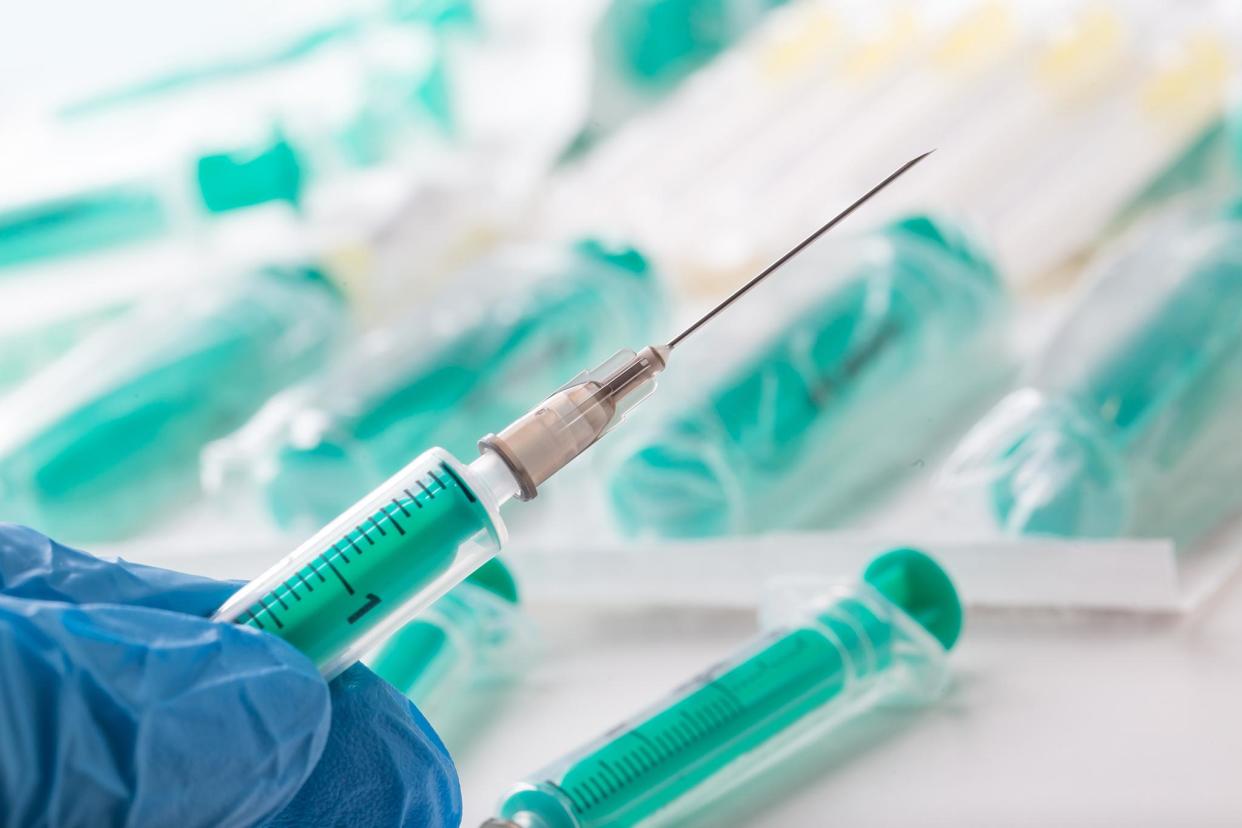Scientists invent jab that could deliver every childhood vaccine in one go

Scientists have invented a new technology that could enable every childhood vaccination to be given in a single injection.
The all-in-one jab stores the different vaccines in microscopic capsules in the body and releases the dose, as well as any required boosters, at the appropriate time.
Researchers at the Massachusetts Institute of Technology (MIT) found the method was successful in tests involving mice and reported their findings in the Science journal.
They said they were able to design the micro-capsules so that they released the different vaccine particles at exactly nine, 20 and 41 days after they were first injected.
The new micro-particles are biodegradable and are designed to break down at just the right time to deliver the vaccine into the body.
Childhood vaccinations are currently given in numerous different injections, causing distress for parents and infants alike.
Babies receive vaccinations against diphtheria, tetanus, polio, whooping cough, Hib and hepatitis B at eight, 12 and 16 weeks. They are also given jabs again pneumococcal and meningitis B at eight weeks, 16 weeks and one year.
In addition, children are given a Hib and meningitis C vaccine at one year, and inoculation against measles, mumps and rubella at 12 months and when they are three
The new technology could instead see all of these vaccinations given in one single jab.
Professor Robert Langer of MIT, who jointly led the study, said: "We are very excited about this work. For the first time, we can create a library of tiny, encased vaccine particles, each programmed to release at a precise, predictable time, so that people could potentially receive a single injection that, in effect, would have multiple boosters already built into it.
"This could have a significant impact on patients everywhere, especially in the developing world."
Experts said the ease with which a number of vaccines could be delivered in one go might prove the difference in encouraging people to get vaccinated, especially in the developing world, where children generally see medical professionals less frequently.
The new technology involves using microscopic silicone moulds to form the micro-particles. The particles are then removed, filled with the vaccine or drug and allowed to dry. A lid is then added and the whole module heated to seal it.
Inside the body, the boxes remain sealed until the micro-particles break down – the timing of which can be determined by scientists based on the makeup of the materials used.
The method could also be used to help people who require regular injections, such as those with diabetes or serious allergies.
When the technology was used to inject mice with a protein that stimulates an immune response, scientists found the response was as strong as would be expected after two conventional injections with double the dose.
The materials used to make the capsules have already been approved for use in humans but the whole technology is likely to soon be tested on people.
One challenge facing the researchers is how to adapt vaccines, which are usually refrigerated to keep them stable, so that they can be stored in the human body at the much higher temperature of 37C.

 Yahoo News
Yahoo News 
